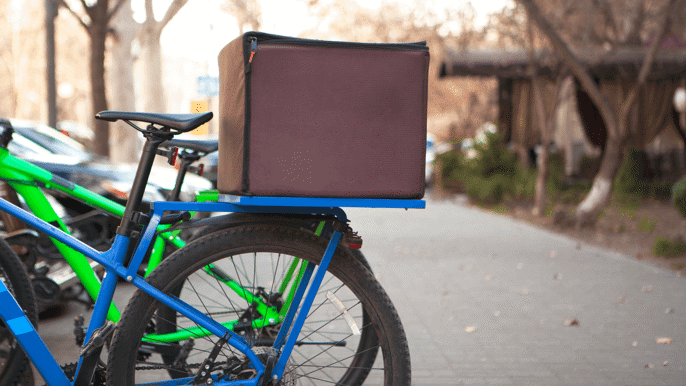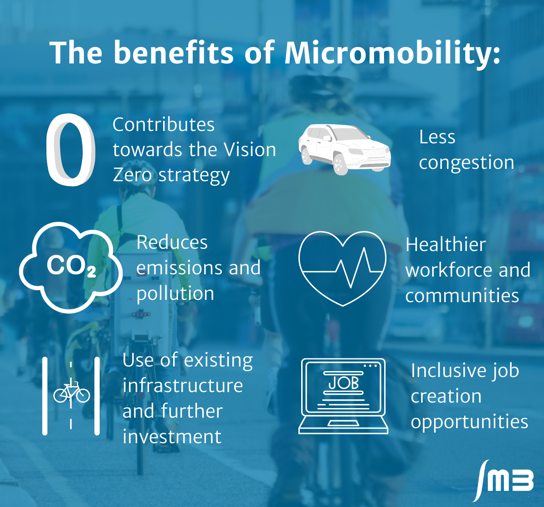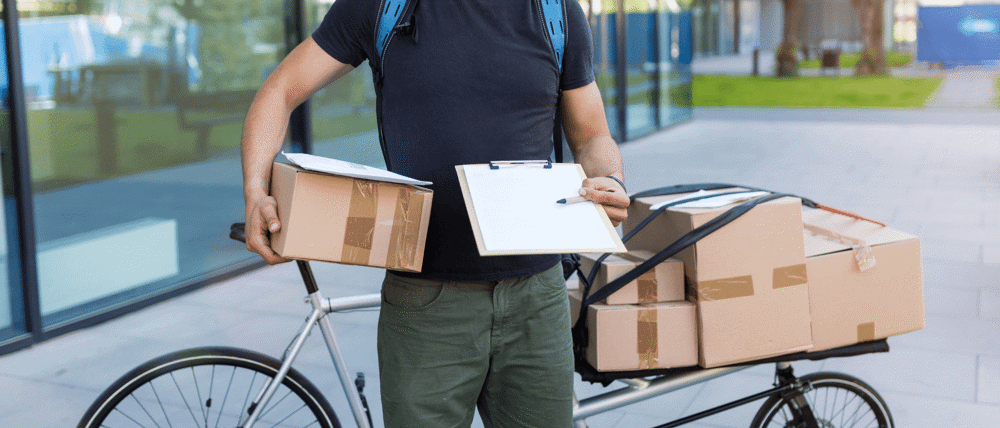Amazon has made a significant leap forward in the world of last mile logistics, announcing the opening of its micromobility hub for more sustainable deliveries in Central London.
The new fleet of e-cargo bikes and walkers, along with electric delivery vans already in use, are set to make more than five-million last mile deliveries a year, through sustainable or active travel methods.
After grocery and food deliveries, parcel deliveries make up the largest market segment. Often, it is the last mile that offers the greatest challenge to logistics operators when considering cost, efficiency, and environmental factors. In recent years, industry leaders have begun to devise creative solutions to the last mile problem, with trials in Drone Deliveries, cargo bikes and even autonomous delivery robots integrated in the community in Milton Keynes.
Amazon pioneering the way forward in London
Working alongside the London Borough of Hackney, Amazon’s new micromobility hub will make more than one million deliveries each year. This is in addition to the millions of Amazon deliveries already being made by electric vans across London. Traditional van deliveries to customers will be replaced by the fleet of e-cargo bikes and walkers, easing traffic congestion, improving air quality, and reducing noise pollution.
This move brings Amazon closer to its Shipment Zero mission, which is to deliver 50% of its shipments with net-zero carbon by 2030. The company’s ultimate goal is to be net-zero carbon by 2040.
Councillor Mete Coban, Hackney Council Cabinet Member for Environment and Transport, stated:
“Tackling transport emissions is key if we’re to reach net zero. We’re really pleased to have worked with Amazon to support them to take traditional vans off the streets and replace them with e-cargo bikes. This will help to reduce emissions and improve air quality for people in Hackney and beyond.”
Amazon’s new micromobility hub also addresses workforce health and inclusivity. Cycling and walking bring clear health benefits, and as there is no requirement for a driving licence to make walking and cycling deliveries, these roles are more accessible to more people.

What is an e-cargo bike?
An e-cargo bike (also known as an electric cargo bike) is a bike that has been designed with a storage area, and it uses an electric motor. These bikes offer an eco-friendly alternative to petrol and diesel transportation as they emit zero tailpipe emissions.
E-cargo bikes are becoming increasingly popular as last mile delivery vehicles due to their efficiency and their role in the fight against climate change.
As these bikes take up less road-space than conventional vans, this helps to ease traffic congestion. E-cargo bikes are also highly efficient when compared to traditional van deliveries. The bikes can take shorter, faster routes by using cycle lanes and bus lanes, and being wheeled through pedestrianised areas. With e-cargo bikes being much smaller than delivery vans, they can often be parked closer to destinations, meaning deliveries can be made more quickly.
E-cargo bikes do not require a licence or road tax and are cost-efficient to run, with an average range of 40 miles on a full battery charge.
What are the benefits to the micromobility strategy?
There are a number of benefits to implementing a micromobility logistics strategy as part of your operations or business.

Micromobility deliveries Conclusion
London is just the beginning in Amazon’s plans for this new initiative. The company is expected to launch additional e-cargo delivery hubs across the UK in the coming months, and already has over 1,000 electric delivery vans in operation throughout the country. Electric vans delivered more than 45 million Amazon packages last year.
Five new fully electric Heavy Goods Vehicles have also recently been announced by Amazon, replacing traditional diesel trucks. These 37-tonne vehicles are among the first in the UK and are the first in Amazon’s own fleet.
With a number of other renewable energy-based initiatives underway or planned, is Amazon leading the way for organisations big and small to tackle climate change?
With businesses striving to achieve sustainability goals and show that they are environmentally focused, we expect to see an increase in projects such as this. Incorporating strategies like these at a site could see huge improvements to the local and wider air quality and could contribute to a scheme’s net-zero carbon goals. It is now important for planners to consider the impact on infrastructure design and to ensure users such as e-cargo cyclists and delivery walkers have adequate safe routes to use.
We have a wealth of experience in advising and designing sustainable transport strategies for schemes of all sizes. If you would like to discuss your project with us, get in touch with our team of experts today.
Bibliography
Amazon launches first fleet of e-cargo bikes in the UK (aboutamazon.co.uk)
Choosing ecargo bikes to make last mile deliveries - Energy Saving Trust
Amazon unveils first-ever fully electric heavy goods vehicles in its UK fleet (aboutamazon.co.uk)







